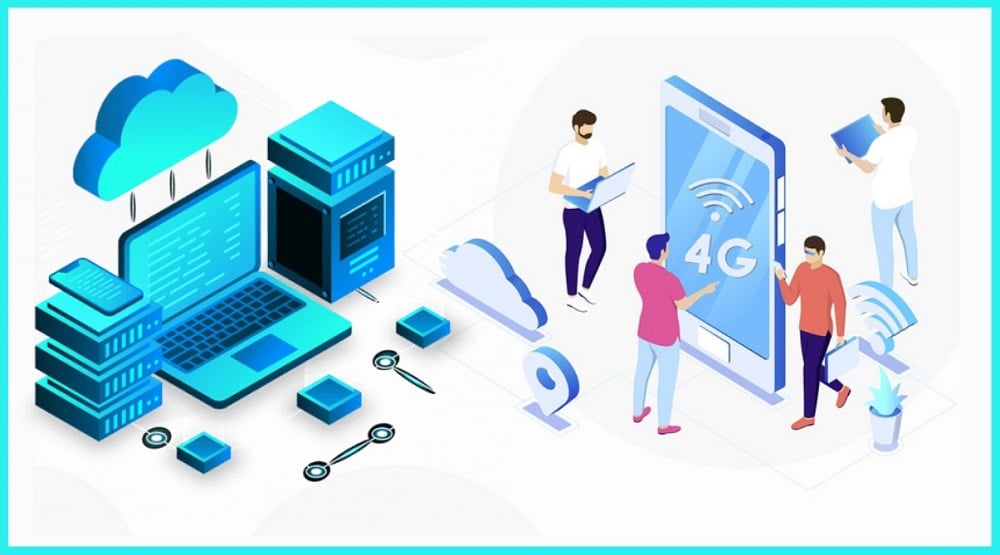
Proxies come in various types, each with special qualities of its own. Every proxy type provides a certain level of privacy and anonymity, with some being more capable and ensuring a higher success rate than others. Look no farther than mobile proxies if you want a proxy that outperforms the competition in terms of superior levels of privacy and anonymity.
A Proxy Server: What Is It?
It’s crucial to comprehend what a proxy server/proxy is in order to comprehend what a mobile proxy is. An intermediary known as a proxy assigns fresh IP addresses to all outgoing requests while channelling internet traffic via itself. In this manner, the proxy hides the real IP address, aiding in the provision of online privacy and anonymity.
Different proxy types assign various IP addresses. For instance, a residential proxy will assign an Internet Service Provider’s (ISP) residential IP address (ISPs). These ISPs typically assign residential IP addresses to their clients. Since using residential proxies and IP addresses obtained ethically entails routing traffic through users’ devices via an installed application, both the ISP and the client must give their approval.
But datacenter proxies assign datacenter IP addresses that are connected to datacenters. These IP addresses are virtual since they were created by strong datacenter servers. Datacenter proxies are quickly recognised and prohibited, in contrast to residential proxies, which are difficult to prevent. They are superior to both residential and datacenter proxies, even though residential proxies are more effective in this area than datacenter proxies.
A mobile proxy is what?
Through mobile devices that are connected to the internet through mobile data and a mobile telecommunications provider, a mobile proxy routes internet traffic. Anything from smartphones and tablets to MiFi routers might be considered mobile devices. Outgoing requests obtain the IP address that the mobile carrier assigned to the device by routing traffic through these devices.
Mobile carriers have been forced to incorporate cutting-edge standards and technology into their operations in order to better service their expanding consumer base. This is most evident in how they have integrated IPv4 and IPv6 addresses. The more plentiful IPv6 addresses are intended to take the place of the rapidly running out IPv4 addresses. Additionally, because IPv6 is a more recent protocol than IPv4, it provides an unsurpassed level of trust and anonymity. Additionally, 4G connections primarily use IPv6 addresses. In this sense, 4G mobile proxies aren’t just fast; they’re also safe and offer more anonymity. IPv4 addresses are assigned .
However, in both scenarios, the mobile carrier changes the associated IP address on a regular basis to further increase privacy and prevent IP blockages. This is useful when using mobile devices as proxies. To learn more about mobile proxies and their advantages, visit this page.
Various types
- Free mobile proxies are proxies that look like the internet connections offered by companies. However, in reality, they are not typically connected to the internet by means of mobile computing devices that utilise mobile data. They are free, as their name implies. However, they lack the security, privacy, and anonymity that mobile proxies are recognised for providing.
- These proxies use actual mobile devices to redirect traffic. They boast the highest levels of protection, security, privacy, and anonymity.
Utilization
- Ad validation
- Facebook management
- circumventing georestrictions
- Market analysis, which keeps an eye on costs, availability of items, and the number of rivals
- Monitoring of reviews and reputation
- Monitoring for search engine optimization (SEO), with keyword research
- Blocking cookies, or not allowing them to be installed: Cookies are not required to be saved by mobile proxies in order to connect to the internet.
- broad-based web scraping
This proxy type’s usefulness in various use cases stems from the unrivalled security, privacy, anonymity, and protection it offers.
Advantages
- Mobile proxies are capable of allocating either IPv4 or IPv6 addresses, and they have a substantially bigger pool of IP addresses.
- Mobile proxies are more anonymous and private than datacenter proxies or residential proxies, and they are more difficult to stop because the mobile carrier changes the supplied IP address on a regular basis.
- Mobile proxies are fast, especially 4G mobile proxies.
- They provide more security because several users use the same IP address, making it impossible to identify you or your activity.
Disadvantages
- Compared to datacenter proxies and residential proxies, mobile proxies are more expensive.
- They allocated shared IP addresses, which pose certain privacy risks.
- Since the majority of users do not put anti-malware software on their mobile devices, these proxies provide a security concern.
- In comparison to datacenter proxies, which are backed by robust, high-performance proxy servers, mobile proxies perform worse.
Conclusion
In comparison to residential and datacenter proxies, mobile proxies are superior. This is because they provide superior IP block protection, security, privacy, and anonymity. However, there is a premium for this because they are more expensive.